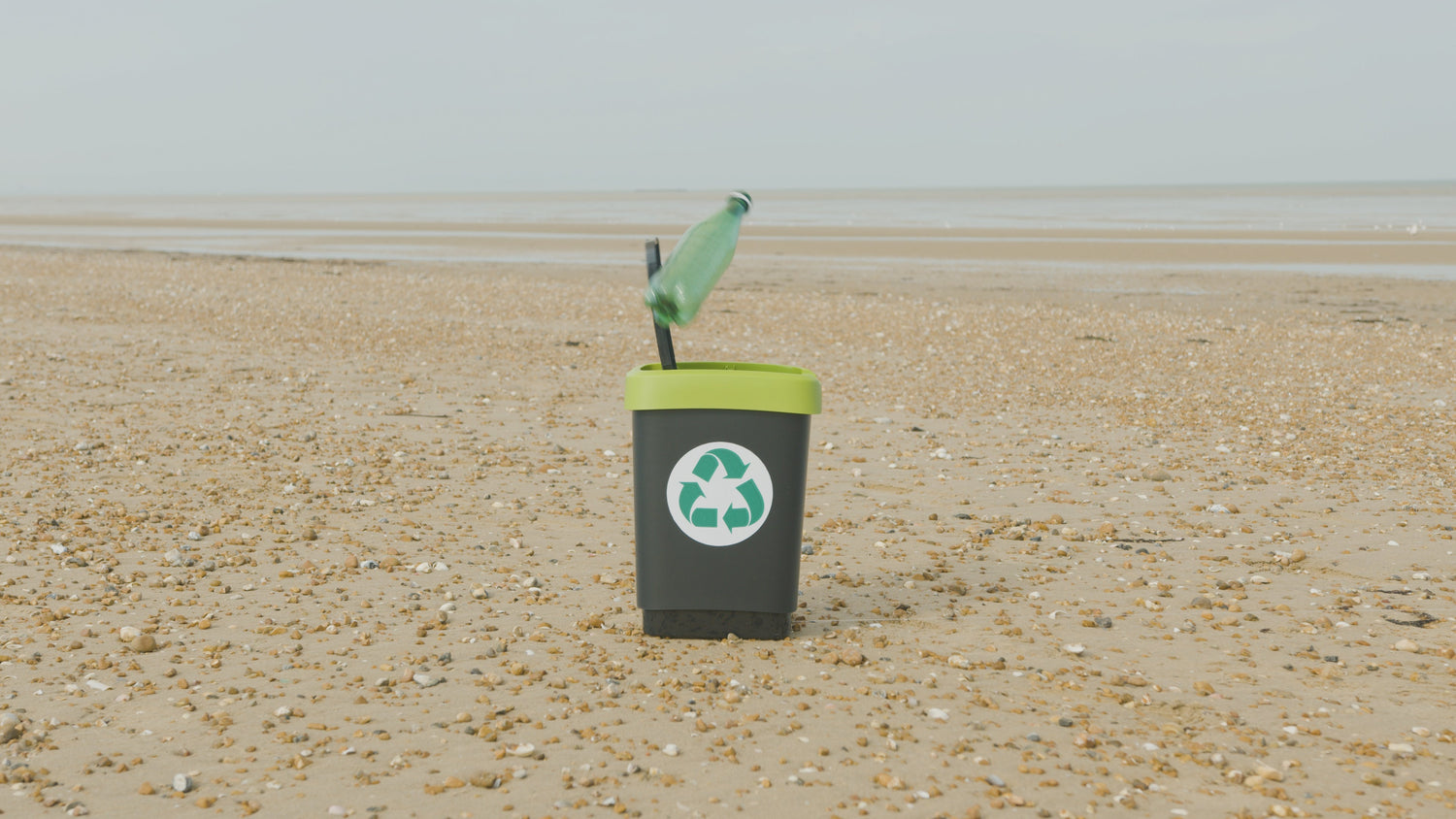What you need to know about Recycling processes in the UK 2023:
Recycling has been a large part of UK life for several decades. Since the Household Recycling Act was introduced 20 years ago, many of us have adapted to recycling within our homes. But have you ever wondered where your recycling goes? Or, what happens to it?
We rarely think about what happens once our recycling bins are emptied. Tracking recycling processes isn’t easy either and information is often out of date. The latest UK government data is from 2021. Back then, households recycled just 44.6 percent of waste, a figure nearly identical to that of 2015.
Recycling Week 2023, taking place between October 16 and 22 brings awareness to how far we’ve come — and how far is yet to go.
What happens to UK recycling?
Local councils are usually responsible for collecting household recycling and transporting it to sorting centres, known as Material Recovery Facilities (MRF). This is where materials are sorted before being repurposed.
According to Let’s Recycle, there are 108 MRFs in operation around the UK, receiving 4.2 million tonnes of waste annually. At an MRF, your recycling will go through several processes to separate the materials.
Paper, metals, glass and plastic are all extracted and separated with heavy-duty machinery, electromagnetic currents and optical sorting technology. Sometimes, sorting processes are completed by hand. The entire system is labour and energy-intensive. As our country faces challenges like inflation, the price of all these processes will rise.
Where does UK recycling end up?
Once sorted, the materials usually get taken to other facilities that specialize in recycling. Although some waste will be recycled in the UK, there are simply not enough facilities across the country to match the amount of waste.
As a result, more than half of plastic waste that the UK considers ‘‘recycled’ gets shipped to countries like Turkey or Malaysia. Transport of recycling adds to the already massive carbon footprint of waste systems.
This is also where things get complicated. Not only is it harder to track recycling shipped overseas but some may not get recycled at all.
A Greenpeace report claimed that materials headed for recycling sometimes get mixed with other waste. While it’s illegal to ship plastic out of the UK unless it's going to be recycled, several investigations found UK plastic waste had been dumped and burned at illegal dumps.
How can we improve UK recycling processes?
It’s no secret that we’re facing some major recycling challenges. Current setbacks mean the UK is missing key targets and letting taxpayers down. So how can this change?
The role of the consumer
You, as a consumer, have a lot of influence in helping to shape recycling practices and policy.
1. Get Informed
Knowing what recycling systems are available can help improve approaches to waste. Double-check what can go into your recycling bin via the UK Government website. Familiarize yourself with alternative solutions for non-recyclable items as well. There are many regional programmes, such as New To Me in Bradford, that encourage people to leave old belongings for others to pick up.
2. Take Action
Talk to your neighbours, take part in local clean-ups, write to your MP, explore community-wide waste reduction processes, and make sure your voice is heard. Knowledge is power and sharing what you know about current UK recycling practices with others can help encourage change. What’s more, check out what organizations such as WRAP and A Plastic Planet are doing and show support by getting involved with their initiatives.
3. Shop Thoughtfully
Opt for products with minimal packaging or choose brands that use recycled materials when you can. Remember, local grocery shops tend to use less plastic wrapping on fruit and veg than bigger supermarkets. This graph shared by Greenpeace suggests Morrisons and Tesco are the worst contenders for reducing plastic in their stores.
Local authorities
Yes, we’ve just mentioned that local authorities should have all the information. But it’s not always the case. There are 317 local authorities in the UK, and last year, 53 percent of them saw a drop in recycling in their boroughs. This is because information is unclear and processes aren’t up to date.
UK councils don’t have a lot of consistency in the recycling they accept, and this can get confusing. Our friends at Wrap recently published a Wrap report that said 100 percent of local councils recycle plastic bottles and aluminium cans, but only 30 percent accept plastic film, and 60 percent accept drink cartons for recycling.
Each local authority must collaborate with residents to ensure proper recycling. This should be done through regular communication, clear information about recycling and genuine engagement to identify pain points among households.
The UK Government
As the UK pushes to increase recycling rates, MRFs and recycling centres will face more pressure to manage larger waste deposits. It’s the government's responsibility to invest in these systems and start taking domestic recycling seriously.
We need policies that encourage recycling innovation and reduce the cycle of UK waste being dumped overseas. We need a commitment to more recycling centres in the UK and support for startups that want to bring new technology to this field. And, most importantly, we need leadership that can steer the country toward a circular economy future.
Collaborating on a greener future
“Individually, we are one drop. Together, we are an ocean” — Ryunosuke Satoro
While there’s still room for improvement, change is already underway. When supermarkets started charging for plastic bags in 2015, there was a 98 percent drop in use in England. This proves that even the smallest changes can have a massive impact on our planet.
The newly introduced Extended Producer Responsibility (EPR) means that some retailers will need to pay waste management fees to meet new recycling obligations. By 2025, the UK will also likely implement a deposit return scheme to boost recycling.
Beyond this, collaboration is also crucial for future recycling success. We’re talking about shared insights, expertise and communication between the government, NGOs and the wider community. You can now support and get involved with many organisations to improve waste management and recycling. WRAP and A Plastic Planet are hugely influential in this, launching campaigns such as Recycling Week on people’s behalf.
Recycling Recommendations for your Reusable Bottle
We want your Ocean Bottle to last you a lifetime. That’s why we champion durability in our design, as well as offering a 10 year warranty on all of our products, meaning we’ll replace defective or broken parts for free, always. Register your bottle by scanning the base with your phone to activate your warranty. If your bottle does reach the end of its life, click here to see and save our instructions on how you can make sure it gets a chance at a new life.


